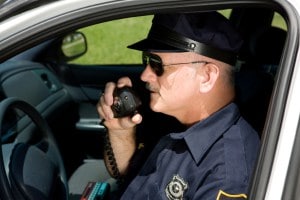Two Recent Tennessee Supreme Court Decisions on Minor Traffic Violations and Probable Cause
 Following the same road as the United States Supreme Court, the Tennessee Supreme Court essentially told police, sheriffs, and deputies that they may stop a driver for virtually any minor traffic violation occurring on Tennessee roads. In one case, the Court upheld a stop by police of a motorist who, while driving on the interstate, drifted across the fog line, the line marking the right side of a lane, and in the other case police stopped a driver for crossing a double yellow line on a windy two-lane road when there was no traffic. Both cases involved DUI, or driving under the influence of drugs or alcohol, no doubt a serious issue. Each stop resulted in the police gathering evidence to support a DUI case. In one case, the video evidence did not support the police officer’s testimony, but the officer satisfactorily explained that fact. Both stops occurred in the wee hours of the morning. In both cases, the lower state courts upheld the stops and the resultant conviction or plea. Tennessee’s highest court upheld the lower courts’ decisions, the stops, and the convictions, ruling that the police officers acted within the legal and constitutional limits of their authority.
Following the same road as the United States Supreme Court, the Tennessee Supreme Court essentially told police, sheriffs, and deputies that they may stop a driver for virtually any minor traffic violation occurring on Tennessee roads. In one case, the Court upheld a stop by police of a motorist who, while driving on the interstate, drifted across the fog line, the line marking the right side of a lane, and in the other case police stopped a driver for crossing a double yellow line on a windy two-lane road when there was no traffic. Both cases involved DUI, or driving under the influence of drugs or alcohol, no doubt a serious issue. Each stop resulted in the police gathering evidence to support a DUI case. In one case, the video evidence did not support the police officer’s testimony, but the officer satisfactorily explained that fact. Both stops occurred in the wee hours of the morning. In both cases, the lower state courts upheld the stops and the resultant conviction or plea. Tennessee’s highest court upheld the lower courts’ decisions, the stops, and the convictions, ruling that the police officers acted within the legal and constitutional limits of their authority.
Both defendants, however, sought to have the evidence against them suppressed and argued that the officers’ reasons for stopping them violated their constitutional rights protecting against unreasonable and unlawful seizures. The Tennessee Supreme Court disagreed and relied upon two state statutes to support its decisions. The first law the Court used prohibits drivers from being outside of a lane, but that law can be bent when drivers are outside of a lane to avoid roadside dangers. The Court found in that instance the statute could not be bent; the driver had no practical reason to be outside of the lane. Consequently, the Court decided the officer had reasonable suspicion and articulated enough factors, such as time and road quality, to constitutionally stop her and pull her over.
In the other case, the high court cited a statute, which prohibits drivers from wheeling onto a highway centerline. Drivers who wheel onto a highway centerline violate a state traffic law. When police have a reasonable belief or probable cause that a driver violated this type of traffic law, they may stop the driver. In this case, the officer saw the driver wheel onto the centerline. Consequently, the Court determined the officer had probable cause to pull him over. Therefore, any evidence obtained was admissible in court and could be used against the driver.
What qualifies as reasonable suspicion or probable cause in one situation does not necessarily qualify as reasonable suspicion or probable cause in another situation, and what one individual considers reasonable suspicion or probable cause another individual may not consider reasonable suspicion or probable cause. Courts typically lean toward an “objective reasonableness” standard.
The rationale for the Tennessee Court decisions is that legislatures write the laws and the Courts must enforce them as written. The Tennessee Supreme Court’s opinions read it is not the duty of the court to change the laws written by the state legislature. For some time, courts have been criticized for “judicial activism,” generally based on decisions regarding social issues. Judges have heard the criticisms and responded. Some citizens and courts in other states view granting police the power to stop citizens for minor traffic violations as encroaching on the liberty of citizens. Drawing clear lines has benefits – it provides guidance to the public and police and makes misunderstanding about the law’s reach less likely.
These opinions regarding the police’s ability to stop citizens’ vehicles for minor traffic violations carry serious implications for citizens, travelers, and law enforcement agents. It is virtually impossible not to stray outside the traffic lane occasionally. Tennessee, like other states, has thousands of “rules of the road.” The rulings may well lead to more unnecessary confrontations between the police and the public. The rulings, some critics contend, give police almost unbounded discretion to stop any driver or person for several reasons: (1) to fill the coffers in a city or county with fines for minor traffic violations because fines are not necessarily cheap in Tennessee; (2) to select who to stop based upon whether a person is driving an older car, is of a particular color, or is a particular age; or (3) to select a person to be stopped not based on the minor traffic violation itself, but because of a suspicion that the police cannot articulate or express. If the driver has a commercial driver license, the consequences are even worse. Three tickets in a short span of time may result in the loss of that license and the ability to work and feed one’s family.
Other people argue the rulings protect public safety and allow the police to do what taxpayers ask them to do: enforce the laws and keep the roads safe. They contend that if police readily can stop inattentive or dangerous driving, the public is better served. Of course, police should stop dangerous or inattentive driving, but the question is whether the balance has been tipped too far in the police’s favor. Though both the Tennessee and federal constitutions protect against unreasonable searches and seizures, the United States Supreme Court and the Tennessee Supreme Court have ruled that these types of stops do not violate the federal or state constitution. Federal and state courts have ruled that since the legislatures have passed the laws, it is not unreasonable for the police to enforce them.
As far as stopping vehicles for minor traffic violations alone, the U.S. Supreme Court essentially ruled the same way years ago. Under federal law, a minor traffic violation typically justifies stops by the police. Under federal or state law, however, a stop may lead to more than mere inconvenience or just a traffic ticket, and stops occurring on clogged roads lead to gawking, slow-downs, and more time on the road by other motorists. Moreover, if after a stop, the police smell alcohol or find drugs or if a driver or passenger acts suspiciously, the driver may find his or her vehicle searched and the driver or passenger may be arrested or charged with crimes, even minor ones. Furthermore, under U.S. Supreme Court precedent, police may arrest a person for violating a minor traffic law even when the law does not allow the person to be jailed.
The laws on probable cause, traffic stops, searches, seizures, and related topics can be complicated and confusing. If you are stopped by the police and/or arrested for or charged with crimes such as reckless driving and driving under the influence, you have rights and legal remedies. For more information, contact Nashville Criminal Defense Attorney Perry A. Craft.

Perry A. Craft has dedicated his life to helping people in need. He has tried, settled, or resolved numerous civil and criminal cases in State and Federal courts, and has represented teachers and administrators before school boards, administrative judges, and the state Board of Education. Learn more about Attorney Craft.
